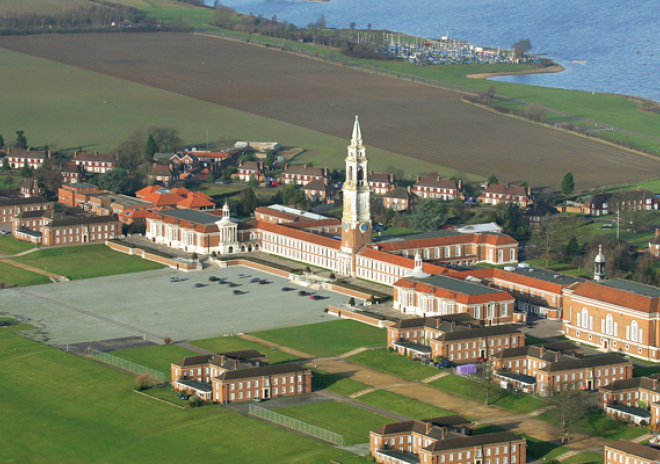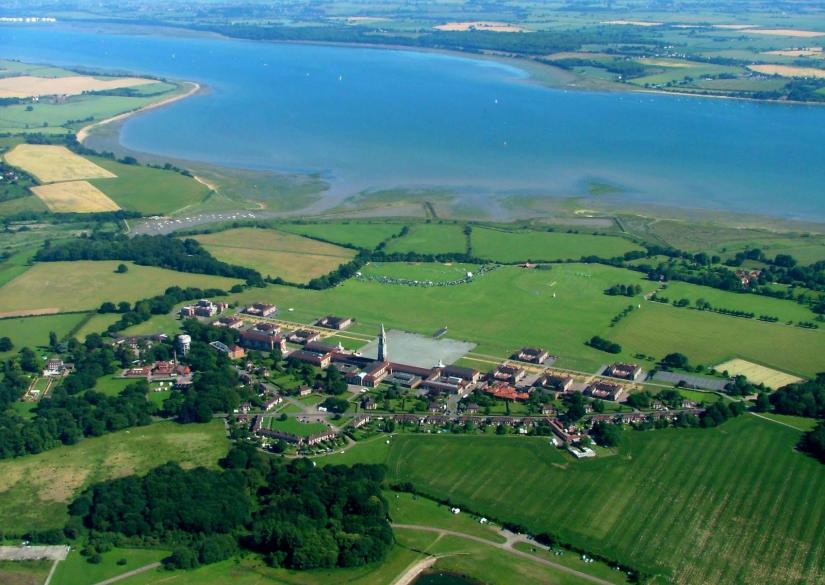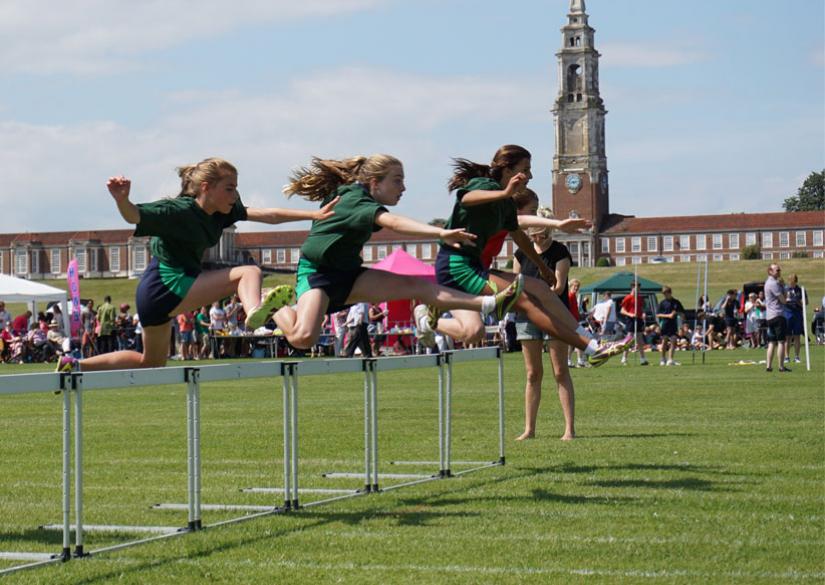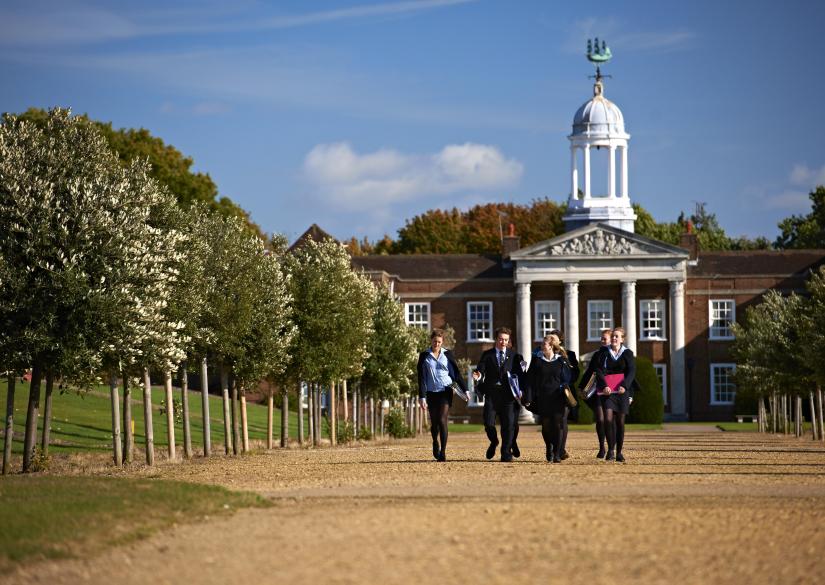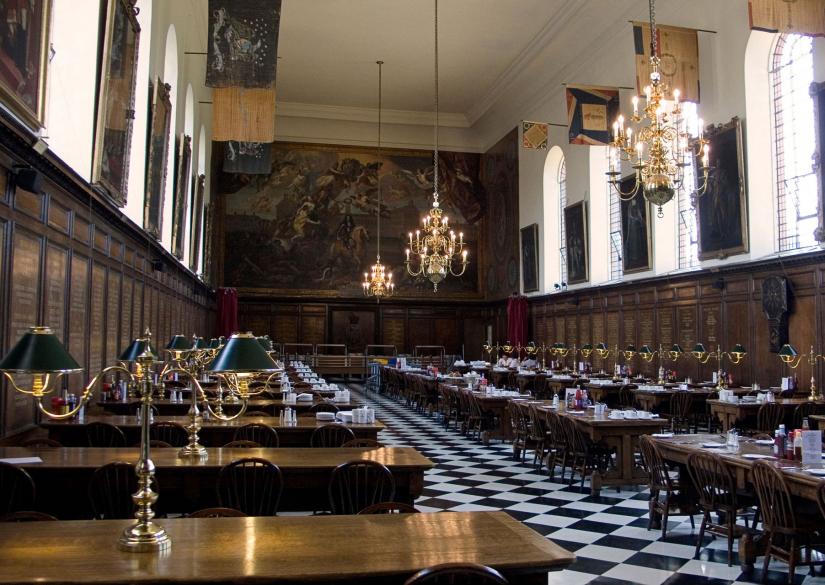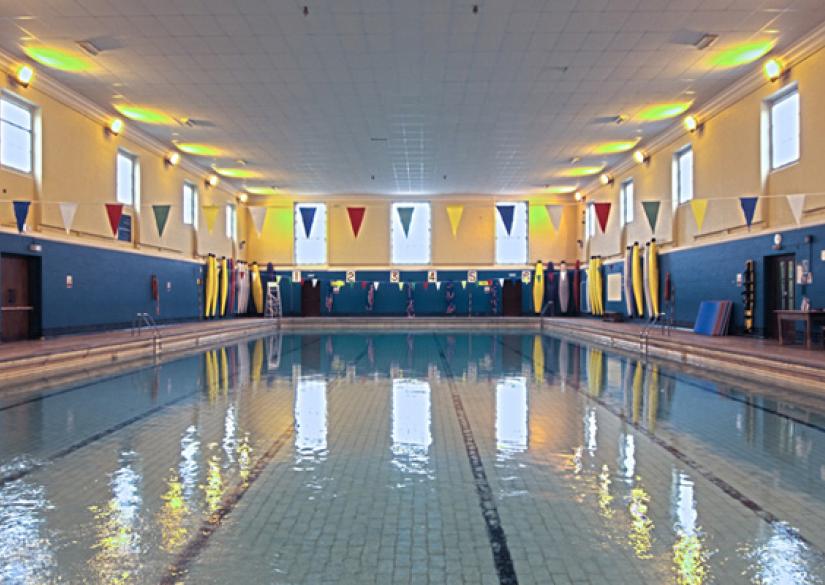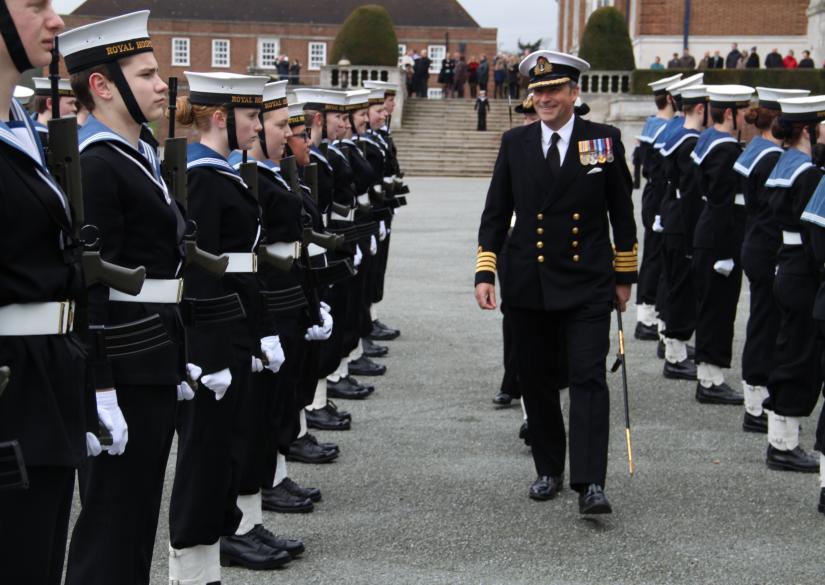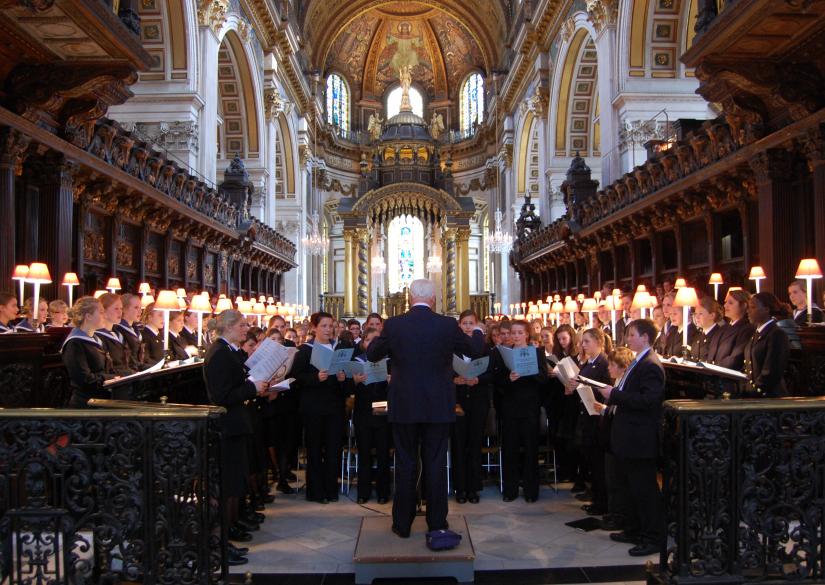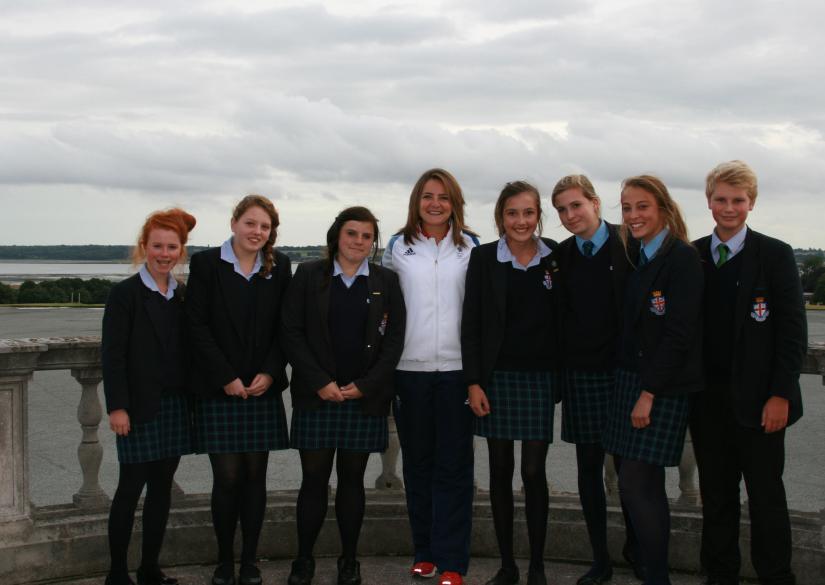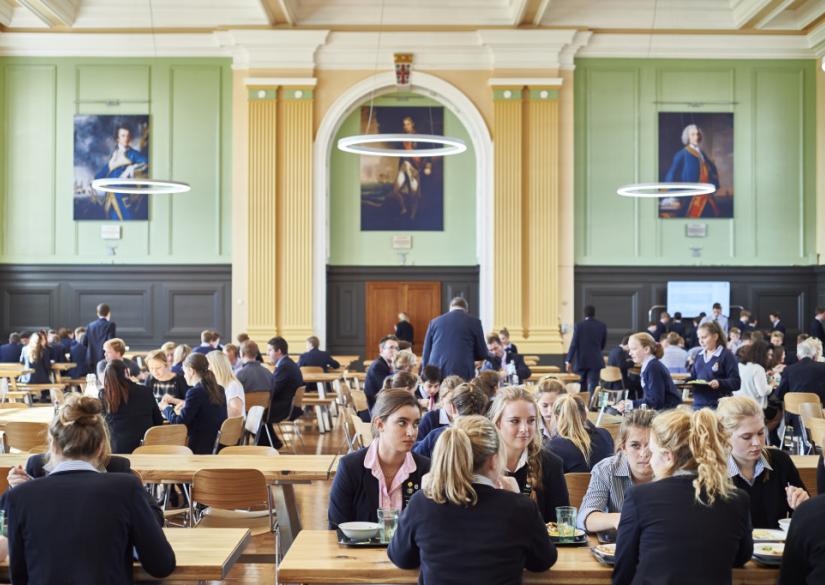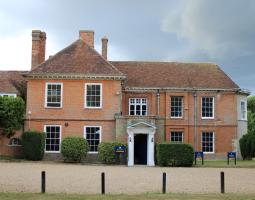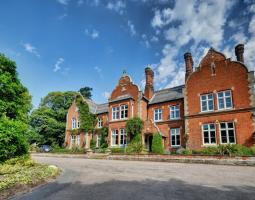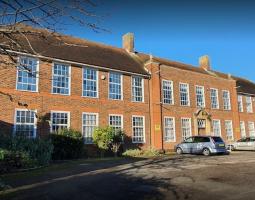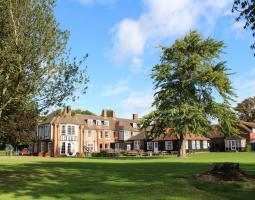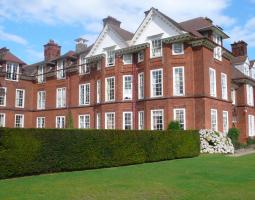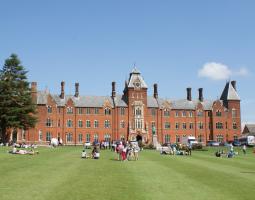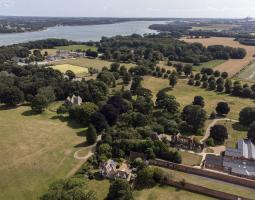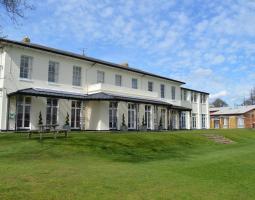Royal Hospital School
In the process of preparing the material, we referenced the following sources: Wikipedia, GOV.UK
Programs and prices, tuition fees in Royal Hospital School
Quick overview: an educational program of GCSE is designed for international students.
About the educational program: a course of secondary education, which allows you to obtain a valuable certificate GCSE (General Certificate of Secondary Education), which is recognized throughout the world. The number of subjects is quite large.
Among them there are compulsory:
- Mathematics;
- English and literature;
- Physics;
- Biology;
- Chemistry;
- A foreign language (French, Spanish or German).
List of subject to choose:
- History;
- Business research;
- Latin language;
- Art;
- Sports research;
- Music art;
- Media research;
- Geography;
- Information technologies;
- Religious studies.
About the educational program: A fairly complex and thorough program designed for international students planning to enter the university. The program is designed for 2 years of study. In the first year (AS) 4-5 subjects are studied at choice, on the second - 3-4. Successful completion of the program allows students to obtain a valuable "advanced" certificate - Advanced Level General Certificate of Education.
Description of Royal Hospital School
Royal Hospital School is one of the leading independent boarding schools in the UK for students from 11 to 18 years old. The institution is located in Suffolk County, near the bustling city of Ipswich (5 miles), in a picturesque and calm countryside.
Royal Hospital School was founded in Greenwich in 1712 - initially its profile was only young men's education, mathematics and navigation. Then the institution switched to a mixed form of studying and adopted a classic, full model of British education. At the current location, near the banks of the Stour River, the campus has been functioning since 1933.
The total number of students reaches 700 people, and foreign students come here with great pleasure - here they are attended by representatives of more than 20 countries. The quality of education is emphasized by graduation statistics: approximately 90% of graduates enterwithout problems the selected universities of Great Britain, Europe and the world.
Each student has a personal tutor who closely follows his progress and achievements. If necessary, international students can use the services of a coordinator - he connects parents and children, helps them to interact - and also attends a supporting course of a foreign language EAL or EFL.

Accommodation, meals, prices
Comfortable and cozy residences are built for students - accommodation is conducted in accordance with the gender and age parameter (boys and girls are living separately).
Subjects and sports
Activities Royal Hospital School
Much attention is paid to the physical, athletic development of pupils - you can go in for sports both within the general curriculum (it is necessary to take into account the age of students), and in your spare time, visit sections and friendly games. Among the most popular sport activities are the following:
- Volleyball
- Track and field athletics
- Horse riding
- Football
- Sailing
- Badminton
- Gymnastics
- Lapta
- Fitness
- Cricket
- Water polo
- Tennis courts
- Rugby
- Mini-football
- Squash
- Basketball
- Hockey
- Canoeing.
As the Royal Hospital School is very close to the river and a large reservoir and has a unique heritage of navigation, water sports here are simply beautiful - you can start from the beginner's level and to develop the skills already available and to get a certificate of mastery. Especially popular are swimming, windsurfing and sailing, you can participate in a marine expedition or attend lessons in a school flotilla (usually held on weekends).
No less popular are classes of creativity and art, design and music, choreography and dramatic art. On the campus there are studios, perfectly equipped with the necessary equipment and containing all necessary consumables:
- Textiles
- Sculpture
- Digital and traditional photography
- Painting
- Drawing.
Works of students are constantly participating in competitions and exhibitions of regional and national level.
Advantages
- In 2018, according to the results of A Level - 32.29% of students received marks A - A *.
Facilities and equipment at Royal Hospital School
The total campus area reaches 200 acres: comfortable residences, modern educational buildings and laboratories, workshops and studios for creative pursuits are located here. The sports infrastructure is well represented: an indoor spacious pool, a fitness center, its own stadium, grounds, courts and fields for individual lessons and team games. There is a large number of open areas for recreation, walks and picnics - really, what could be better than resting outdoors on a fine day?
Admission dates and extra charges
The cost of tuition (at the hostel, including meals and lodging) is:
The indicated cost is already included:
- Studying on the program (1 academic year = 3 terms)
- Accommodation and meals
- Teaching aids, books and materials
- Stationery
- Use of school infrastructure
- Laundry services
- Recreational and sports activities.
Please note that there are some surcharges and fees not included in the basic cost of the program:
- Registration fee
- Deposit = cost of one trimester
- Examination fees
- Additional English lessons and academic studies
- Additional leisure activities
- Additional electives - music, horseback riding and others
- Guardianship
- Round trip air tickets
- Round trip (upon prior request)
- Consular fee (payable at the British Embassy)
- Medical insurance
- Courier delivery of a visa invitation (DHL)
Extras:
- Registration fee (for a programme/course) 75 GBP
- Application fee 1750 GBP
- Deposit for a course/programme 2000 GBP
Literature and references
Institution on the map
Residence permits, citizenship and other services
- Guardianship services during the studies
- Student supervision
Review about Royal Hospital School
Recommendations on when to apply
| Language courses, schools and children's language camps | Primary and secondary education - private schools | Preparation programmes for entering universities - higher education | Higher education (after completing accredited programs A-level, IB, High School) - Bachelor, Master, MBA |
| - we recommend to apply 6-9 months before the start of the course (some camps and schools offer discounts for early booking or for lengthy study programs) - there are some very popular and high demand children's camps, where the applications need to be submitted 1 year in advance (in particular Switzerland , Great Britain , USA , Canada , Austria) | - we recommend to apply one year before the start of the training program, - some schools have a specific time frame (September-November - please specify an individual school) - some schools require tests in several stages (UKISET, internal tests of the school: English, mathematics, logics, subjects, interview, some require a personal visit) | - we recommend to apply one year before the start of the program, - for Foundation and Pathway programs, IELTS and TOEFL certificates are usually required, respectively | - recommended submission one year before the start of the program, - the deadline normally closes in January, for TOP HEIs and, as a rule, in March in other universities - for a bachelor, a Foundation or Pathway preparatory program a completed A-level, IB, High School + IELTS / TOEFL are required - for Masters you need a graduated higher education, in some cases you need a pre-Masters program - MBA requires completed higher education, work experience preferably at least 2-3 years, etc. |




